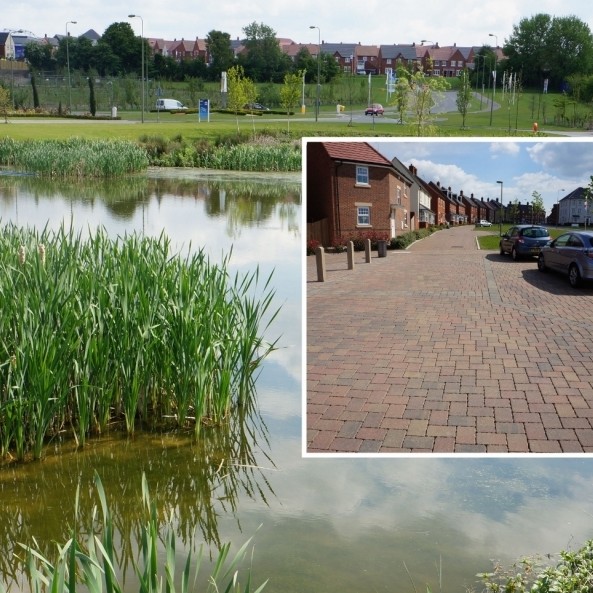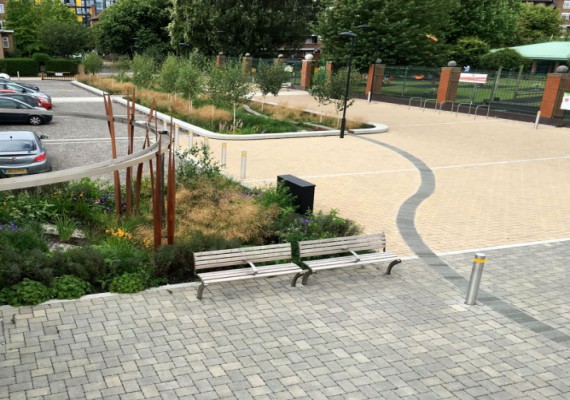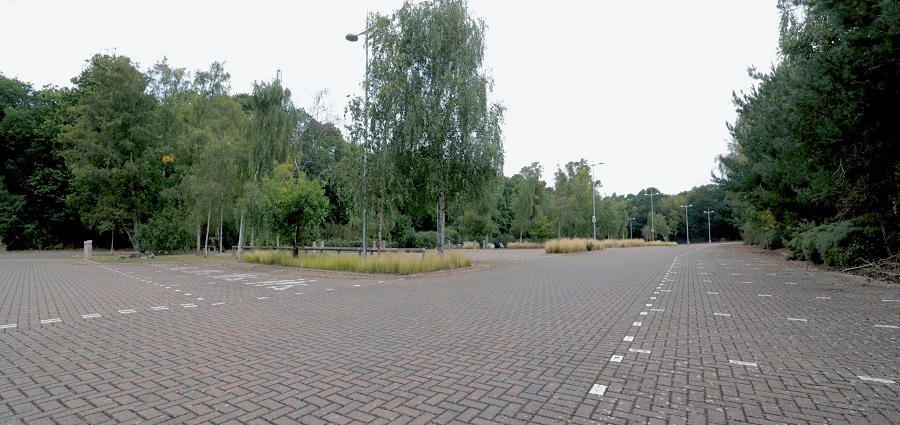
An influential advisory body has warned government that proposals to move requirements for sustainable drainage systems (SuDS) into the planning system will not deliver the necessary reductions in flood risks.
The trade association Interpave shares these concerns in its recently published consultation response to government.
The government’s new proposal aims to by-pass long-delayed implementation of the 2010 Flood and Water Management Act. Instead, amended planning guidance – based on the latest draft national SuDS standards - will bolster the existing National Planning Policy Framework encouragement for SuDS. Then, planning conditions, ‘Section 106 Agreements’ or other measures are proposed to ensure that SuDS will be maintained for the lifetime of the development.
However, in its 24th October letter to the Secretary of State for Environment, the Adaptation Sub-Committee (ASC) of the Committee on Climate Change considers the proposals to be a significant weakening of the Pitt Review recommendations following the 2007 floods, endorsed by Parliament in the Flood and Water Management Act. ASC also points out that the automatic right to connect developments to sewers will now remain, enabling developers to continue using piped drainage rather than SuDS.
Interpave welcomes the proposed strengthening of planning policy to encourage integration of multifunctional SuDS into new developments as a key design issue. But in isolation this will prove ineffective, as local authorities are already failing to follow existing planning policies and regulations, and may well continue to do so. SuDS have been a part of national planning policy for some time. Nonetheless, a recent ASC Progress Report points out that: “Less than half of the planning applications we reviewed considered sustainable drainage. This raises questions as to whether a large proportion of local planning authorities are following national planning policy on SuDS.”
Furthermore, definitive requirements for permeable surfaces were put in place in Permitted Development rules for households (and, in 2010, for non-domestic properties). Despite this, the ASC report observes that: “The low uptake of permeable paving in front gardens suggests that planning regulations for households that have been in place since 2008 are not being enforced by local councils.”
The new proposals also include an exemption for smaller developments that fails to recognise their cumulative effect, highlighted in the ASC letter. There is no technical reason why smaller developments should be exempt as they can easily be provided with SuDS using permeable pavements. The impact of replacing gardens with impermeable driveways is already well known and clearly legislated for, applying to hard surfaces over 5m2. There is no logical reason for a larger exemption for new developments.
Clearly, more policies and good intentions are not enough. Additional legislative intervention is needed, particularly to establish realistic adoption and maintenance procedures. With concrete block permeable paving this is not an issue, as maintenance requirements are minimal. Extensive experience suggests that sweeping just once a year should be sufficient to maintain an acceptable infiltration rate on most sites and there are examples of 10-year or older concrete block permeable pavements still work effectively with no maintenance.
Interpave’s response document to the new proposals - which includes the latest information on concrete block permeable paving maintenance - can be downloaded from the organisation's website - the definitive source of information on all aspects of SuDS, permeable paving and hard landscape.










